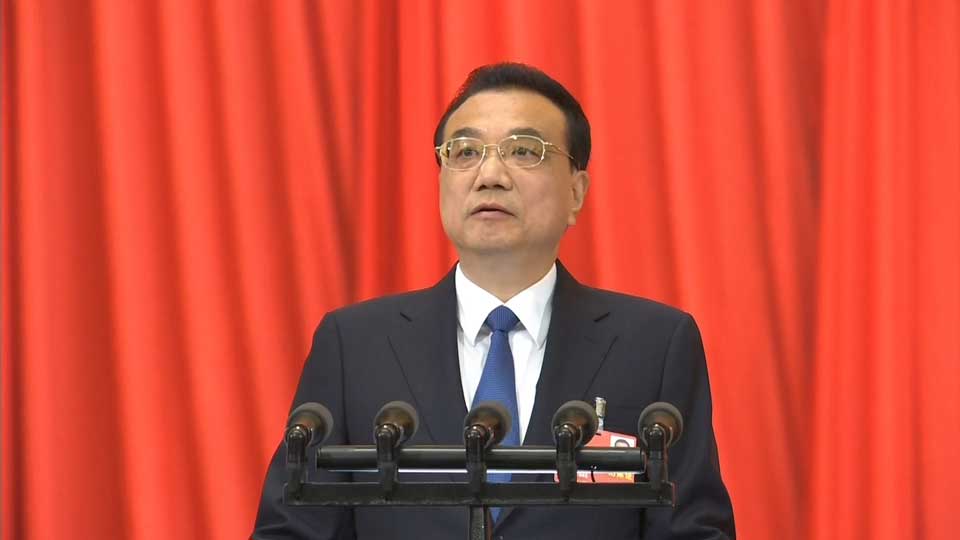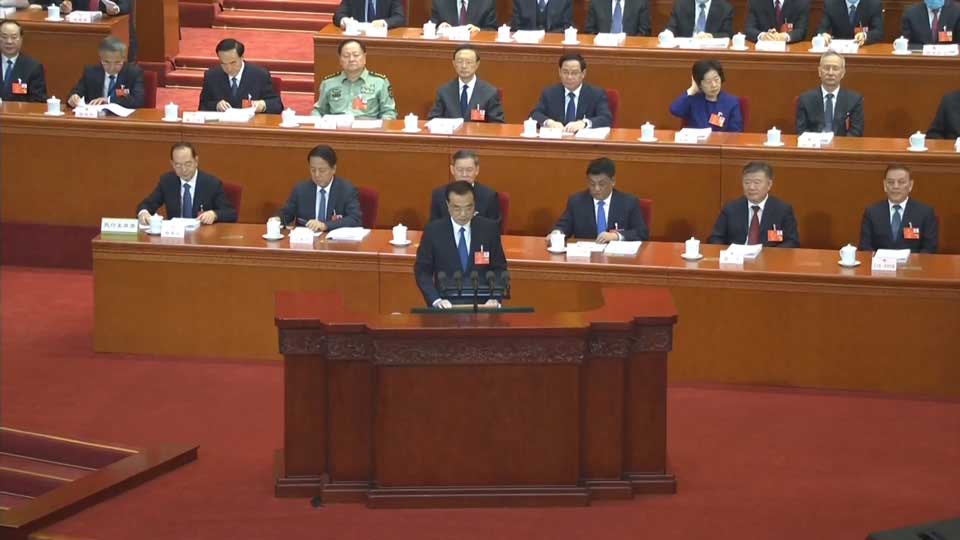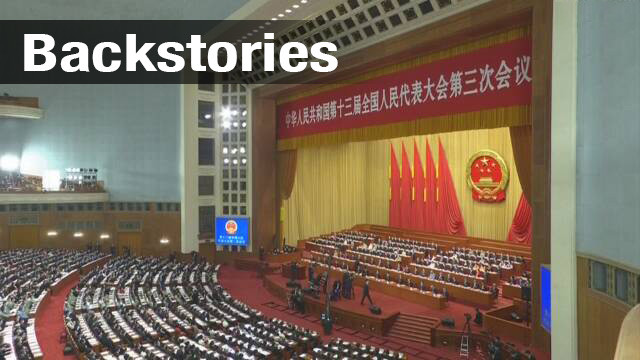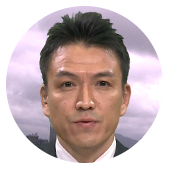An outlook unclear
Premier Li Keqiang addressed thousands of delegates who have gathered in Beijing from around the country. The meeting was originally planned for March but delayed for more than two months because of the coronavirus outbreak.
The economic growth target is usually the topic that draws the most interest from foreign media outlets. But this year Li spoke instead about great uncertainty in relation to the pandemic, the global economy and the trade environment.

Maie Yoichi, professor at the Nagoya University of Foreign Studies and an expert on the Chinese economy says there may be another reason for declining to give a target. He said if the government sets one and misses, it would be the first underperformance in many years and the Xi administration may have to take some kind of responsibility for it. And if they set a low target, it will be a tacit admission that they can't hit a longstanding goal of doubling GDP from 2010 to 2020.
The government has pledged to spend more on stabilizing businesses and employment. It also promised to focus on people's livelihoods and reducing poverty.
Li revealed that about $140 billion of government bonds will be issued for coronavirus control.
Professor Maie said the government is trying to boost domestic demand with investments in infrastructure, such as next-generation information networks and 5G application, because it is difficult to rely on foreign demand. But he said that policy could also aggravate the country's fiscal condition.
Virus heightens tensions with the US
Li described China's handling of the coronavirus as a major strategic achievement, made through the hard work and sacrifice of the nation under the leadership of President Xi Jinping.
He spoke of the country's contribution to outbreak control, and said China has actively engaged in international cooperation and provided timely information.
That's a marked contrast to the characterization coming from the United States, the country hit hardest by the virus. Washington has been accusing Beijing of mishandling the outbreak and hiding information, and the Trump administration says it's considering imposing sanctions or demanding compensation.

Hong Kong is new hot issue
The other headline from the first day of the Congress was a national security law for Hong Kong, conceived as a response to last year's violent pro-democracy protests that plunged the city into turmoil.
Li says the congress will "fully and faithfully" implement the One Country, Two Systems policy and that "enforcement mechanisms" will be created to safeguard Hong Kong's national security.
The plan includes enacting a law and allowing Chinese security authorities to set up agencies in Hong Kong to carry out their duties.
US President Donald Trump has already responded to that idea, saying Washington would react "very strongly" if Beijing went ahead with it. State Department spokesperson Morgan Ortagus said any effort to impose legislation that did not reflect the will of the people of Hong Kong would be highly destabilizing and met with strong condemnation from the US and the international community.
Tensions between the two superpowers over trade, technology, Taiwan, and Hong Kong only add to the challenges President Xi faces as he looks to revive the economy and keep a firm grip on power.


